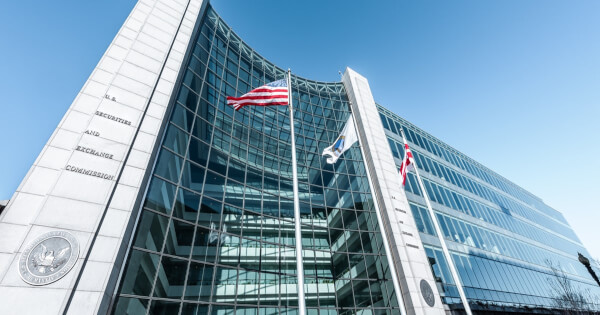CFTC republican commissioner Brian Quintenz has challenged the US Securities and Exchange Commission chair Gary Gensler’s claim that most cryptocurrencies are securities and therefore fall under the SEC’s jurisdiction.
On Wednesday August 5, commissioner Quintenz tweeted that: “the SEC has no authority over pure commodities or their trading venues whether those commodities are wheat, gold, oil… or #crypto assets.” Quintenz’s comments come after Gensler stated this week that many cryptocurrencies should be considered as securities.
Shortly after, the US House Committee on Agriculture responded to Quintenz’s tweet, stating: “#crypto is bigger than the SEC,” Therefore, the committee further said that Congress should create regulations to regulate the crypto landscape.
Meanwhile, Christopher Giancarlo, the former chairman of the US Commodity Futures Trading Commission (CFTC), who is also known as “crypto dad”, stated his views on the conversation, saying that the CFTC was the only agency with the experience to regulate Bitcoin and cryptocurrency markets, not the US SEC.
Giancarlo further urged the Biden Administration to nominate a new CFTC chairman to generate “sensible cryptocurrency regulation.”
Currently, Rostin Behnam is serving as the acting chairman of the CFTC after succeeding Heath Tarbert in January 2021.
The Regulatory Obstacles
Cryptocurrencies have surged in price recently amid rising interest by the public, investors of all kinds, and financial firms.
Despite a steady acceptance, the future regulatory framework for such assets remains uncertain and complex. Developing a new framework is a huge task, involving several stakeholders and extending beyond highly publicised bitcoin and crypto-assets.
Several challenges are facing a rollout of new cryptocurrency regulations in the US. The biggest obstacle is jurisdictional overlap and friction among regulators.
Although the SEC is majorly seen as the larger and more powerful markets regulator, the CFTC, the Federal Reserve Board, the FinCEN, and Treasury will still have input. The matter is further complicated by the complex and evolutionary nature of cryptocurrencies, which has led to differing interpretations from the various regulators.
While the SEC sees cryptocurrencies as securities, the CFTC sees them as commodities. The Treasury views them from currencies while the Internal Revenue Service treats them as property for tax purposes.
With such differing viewpoints, it may be up to the Financial Stability Oversight Council (FSOC) and Treasury Secretary Janet Yellen to lead the overall course of action. But Yellen is seen as a bit more of a crypto sceptic, as recently, she raised concerns associating cryptocurrencies with potentials for terrorism financing and money laundering.
Image source: Shutterstock
Credit: Source link












































